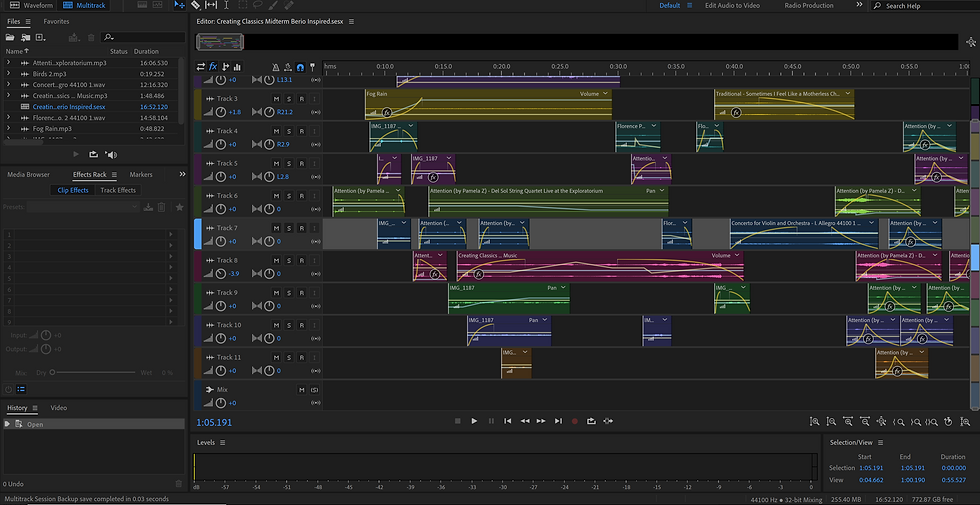Boccaccian Parallels
- Elise DeBiasio
- Apr 16, 2021
- 4 min read
Updated: Apr 17, 2021
A newfound identification with ancient plague stories.
Inspiration: Oedipus Rex
I first read Oedipus Rex in a senior high school class on language, myth, and culture, and found the book incredibly frustrating:
I disliked the emphasis on the futility of human action, placing all culpability on the unforgiving thread of fate.
Oedipus is vilified for his "choices" forcing him against the informal laws of his time he has offered to uphold, never offered a way out his tragic path.
I disliked the accuracy of this magnification of our human want for things to be good.
He has willfully ignored the signs in front of him because he does not want them to be true, hoping to be on the ride side of things.
I, meanwhile, chose to ignore this tendency to willfully ignore in myself, mentally yelling at him for his foolishness, feeling that same want for a happy ending.
Having learned about Freud's Oedipus complex under another teacher just before reading Oedipus Rex, I expected him to possess greater agency, and yet, he wanders obliviously, missing huge indicators that his prophesied destiny had already been set in motion: he has killed his father and he has married his mother. Oedipus is a glorified example of lauded traits of his time, gifted with extreme cunning and an ability to act according to what is just. Even so, he spends most of his time gazing outwards, never pausing to take notice of his own actions. His nature increases the gravity of his end: he assumes himself to be morally right, unknowingly behaving opposite his values.
My second read-through took on a more appreciative tone, and I suspect that shift came from feelings of futility stemming from my tendency to take on the problems of others while ignoring my own during the pandemic.
While looking through responses to COVID-19 , I came across an article on applied positive psychology: The Existential Positive Psychology Model of Suffering (EPPMS) by Daryl Van Tongeren and Sara Van Tongeren (link). To quote the given definition by that article, the model is based on three propositions:
suffering reveals existential concerns
existential anxiety impairs one's ability to find meaning
cultivating meaning is the primary way to address suffering and allay existential anxiety, eventually leading to flourishing (and potentially growth
It posits that we are afraid of the unknown, reacting irrationally when something goes against what we hold true like Herodotean horses. It is that irrationality that this approach hopes to address, potentially inspiring change by attempting to isolate more immediate problems rather than piling up abstract worries that with less immediate effects, preventing increasing feelings of helplessness around personal issues we are currently facing. Their argument for personal betterment is not idealistic in the same as Rhonda Byrne's The Secret ('positive thinking attracts you to good thing, negative thinking attracts negativity'), but instead argues for a more therapeutic approach to accepting the problems we have to face and finding a way to make a massively twisted ball of anxious thoughts more approachable. From the article, "[A]ny approach to human suffering must account for both the darker and lighter side of the human experience, and we posit that one must fully address the harsh existential realities that each person must address while simultaneously working toward sustainable flourishing for individuals, groups, and societies."
NB: For more on The Secret, this is a very negative review of it (link), this is a more neutral overview (link). Positive reviews are abundant.
People turn the things in front of us into larger problems than they actually are. We are trapped inside our heads, stuck at home with our thoughts, unable to leave with ease on leisure walks to clear our minds. Communication has been digitized, and contact feels foreign; texting is not the same as in-person interaction, and even video calls are dampened by the barrier of the screen. With a flood of information, we worry about things we can never address but hope to solve, rarely seeing ourselves as agents of change and so creating existential worries about problems that are not ours.
Unlike Oedipus, the worries that are "ours" are not easily unnoticed. For people suffering the daily struggles of overcrowded hospitals, economic pressures, domestic violence, police brutality, such things are impossible to ignore. But they do become routine as we try to cope, and our threshold for pain increases. This shared suffering, felt at intensely different levels, is much like Boccaccio's premise for his Decameron:
The Decameron [006] "But the cessation of the pain has not banished the memory of the kind offices done me by those who shared by sympathy the burden of my griefs; nor will it ever, I believe, pass from me except by death." (link)
Original Italian from Il Decamerone [006] "Ma quantunque cessata sia la pena, non per ciò è la memoria fuggita de' benefici già ricevuti, datimi da coloro a' quali per benivolenza da loro a me portata erano gravi le mie fatiche: né passerà mai, sí come io credo, se non per morte." (link)
A shared understanding that this is a truly awful time, and a collective want for some form of escape. For Boccaccio, that escape is storytelling, far away from the 1348 pandemic epicenter, Florence. His characters run way from their problems much like Oedipus, though his own fleeing is buried in the subconscious of his mind.
For my translation, I wanted to demonstrate this feeling of futility, choosing the passage that so eerily matched our modern pandemic:
Oedipus Rex [169-175] "Countless are my sufferings. The whole nation is suffering from this wound, from this murderous plague and we see no way to be rid of it. No crops on the land, no children follow the women’s birth pains. And our souls, hasten to beat one another, like fast birds, in their race to get, like a wild fire, to Dark Hades." (link)




Comments